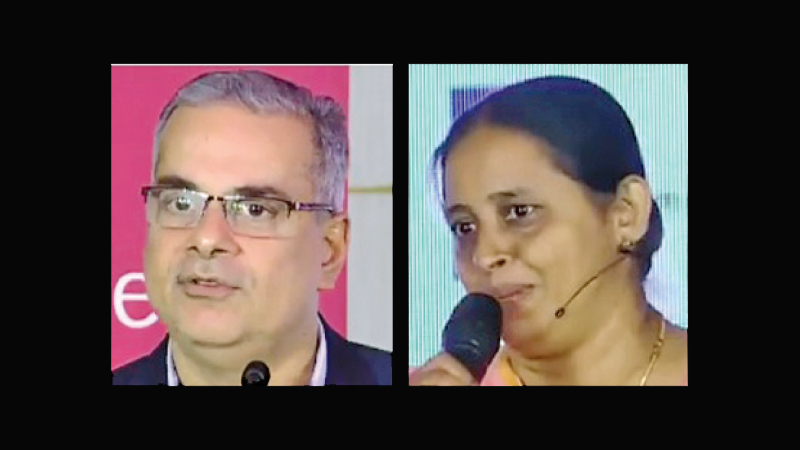The banking consolidation process was forced on Sanasa Development Bank and neither the banks’ views nor its system of operation considered by the regulator during the time, said Managing Director, Sanasa International, Samadani Kiriwandeniya.
She was speaking at the Advocata Institute organised “Closing the Divide through Women’s Access to Micro Finance” at Courtyard by Marriott Hotel on Wednesday.
She said that they had a separate banking model which was very successful when it came to lending especially to the micro sector.
“After the forced consolidation by the regulator we had to change our systems and the end victim was the micro customer. Sanasa bank after the so-called consolidation process became just ‘another’ bank.
“When we later asked the regulator why this was done we were informed that since other banks agreed Sanasa too should fall in line,” Kiriwandeniya said.
She said that Sri Lanka implemented a micro finance system which failed in Bangladesh and is now trying to find solutions. She said while all the micro finance companies made profits, only a few borrowers/customers succeeded.
Most of the problems growing in the micro finance environment is because there is no focused development bank.
Chair Advocata Institute, Murtaza Jafferjee, said that Sri Lankan women’s participation in the labour force is very low.
“While in Sri Lanka it’s around 35% despite women being 51% of the population, in Vietnam it’s around 80% despite the female population being around 45. “He also said that even in most of the other Asian countries female labour participation too is over 50% and steps should be taken to increase this.
“By empowering women with access to credit and financial resources, we can bridge the divide and pave the way for a more equitable future and it can help to increase Sri Lanka’s GDP as well,” he said.
Jafferjee said that when women wish to launch a business they lack collateral to obtain credit from registered lending institutions. “This is mainly because in most cases the property and houses or other assets that could be used as collateral due to local traditions belong to men.”
Banks prefer lending to those with formal jobs, making it hard for women in informal employment to prove their ability to obtain loans, he said.
These challenges, Jafferjee emphasised, create significant barriers for women seeking financial independence. He urged for solutions to address these issues, emphasising the importance of granting women ownership over assets and recognising diverse income sources.
“As we strive to build a more just society, ensuring women’s access to finance must be at the forefront of our efforts,” he said.




